- Home
- J. T. Edson
The Texan Page 5
The Texan Read online
Page 5
Pop walked back along the street with the Texan, listening to the soft-spoken orders; in spite of his grief at losing an old friend, he managed a chuckle at the end and said: “It’ll work.”
“Sure. But you see that they know they’re doing it for my end. If they try to do it for their own, I’ll stop them.”
Benjy Vent lay on the bed in the cell. The town doctor had fixed his wound and he was alone. His eyes were no longer drunk as he looked up at the small Texan. “You’ll get your’n!” be snarled.
“Likely. Happen you won’t be round to see it though.”
“What do you mean?” Benjy Vent heard shouting and an angry roaring from down by the saloon.
“Folks’ll take any amount of abuse, but there comes a breaking point. You reached it when you gunned down old Ogilby. They liked him—and they don’t like you.”
Then Benjy Vent heard the shouts drawing closer; he could make out what they were saying. He felt sudden, cold deep fear at the words, and the angry tones of the crowd as they came nearer: “Lynch him! Get a rope!”
“It’s bad, Vent. They want to hang you.” The Texan turned on his heel, to walk towards the door.
“Where you going?” Benjy screamed.
“Me? To bed. If I stay here, I’ll have to stop them—and I surely don’t aim to kill decent folks to save you.”
“You got to save me—you’re the law!”
The Texan shrugged. “Your brother told me that he was the law. He might come back in time to save you.”
“I’ll tell you where he is!” Benjy Vent gasped. “He’s out robbing a stage. He’s the leader of the Shotgun Gang.”
The Texan stopped. A rock hit the door of the jail and outside, the yells grew louder. He ignored the sounds and went to the desk, opened it and took out a sheet of paper and a pen. Sitting down, he started to write—and Benjy Vent talked:
“Barry got this bunch together; him and Slingo Witch. They picked four men who looked alike. When we went out on a hold-up Smith and Wheeler stopped in town and took turns as barman and waiter. Smith dressed like Haines when he was acting as a waiter, and wore a red wig. Nobody ever cottoned on; they didn’t know us well enough to notice any difference. Worked the same with Brandon and Wheeler. Then I lost the wig, and Mollison found it. Barry knew he was suspicious, so we had to get rid of him.”
“So you shot him with that Sharps as he drew on your brother?”
“Not me. Slingo Witch did it—” Benjy began. Then his mouth dropped open, and he stared at the small man. “How’d you know that?”
“I know it. Get on—who’s your contact man in Wells Fargo?”
Benjy talked, long, loud and eagerly, laying bare his brother’s secrets in his terrified bid to prevent the crowd from getting at him. He was pathetically eager to help this small man—who, only a short time before, he’d been ready to kill. The Texan ignored the noise outside, the pen in his left hand moving over the paper fast as he took down the story.
The door of the jail opened. The Texan came round fast, the pen falling to the desk as his left-hand gun came out and lined. Benjy Vent gave a scream of fear and cowered back in his cell as Pop Howard and another man came in, lifting their hands shoulder high.
“Easy boy, easy!” Pop yelled.
“All right.” The gun went back and the Texan took up the pen with his right hand.
Benjy Vent stared at the two men, yelling for the Texan to stop them getting at him. He backed into the far corner and cowered down as the small man came to the door, carrying the sheet of paper.
“Did you tell me all that’s on this paper?” he asked.
“Sure, sure I did!” Benjy half-screamed back. “Don’t let them touch me!”
Pop Howard snapped: “Look at that yeller rat, He’s not so high and mighty now.”
The Texan opened the cell and went inside. He rested the confession on his knee and held out the pen to Benjy Vent, saying: “Make your mark with your good hand.” Then, after the mark was made, he left the cell and told Pop to witness the other’s signature. “You too, friend.”
After the second man signed, the Texan took the paper to the desk and added his own signature. Without letting the others see it, he folded the sheet and sealed it in an envelope.
“Tell the boys to go home now,” he said to Pop. “I want you to stay here all night, if you will.”
Barry Vent and his men rode into town shortly after dawn on the morning after the shooting. They came along main street, riding in a bunch. There were ugly expressions on their faces as they made for the Vent Bar.
The Texan watched them go by. Then he checked the loads of his matched guns and pulled his hat on, then stepped out. Jean caught his arm.
“Don’t go down there!” she gasped. “Please don’t go down there. Let Gramps get the men of the town together.”
“Nope, the town hired me as their law. I won’t stack them against guns to do my work. Besides, I’ll have the edge, if I get to them first.”
Jean watched the small man walk away towards the Vent Bar. Her face was pale as she imagined the scene at the saloon, that small man stacking up against the deadly killer, Slingo Witch. Then, from in front of the house, she heard the sound of hooves and four men rode by. She glanced at them idly. Then her eyes widened and she gasped: “No. It can’t be. It can’t!” Jean ran round the side of the house as the four strangers turned their mounts to head for the corral.
“I’m with you, Marshal!”
Johnny Sinclair stepped from the sidewalk as the Texan made his way towards the saloon. The blacksmith held a shotgun under his arm and swung alongside the small young man.
“No. I can handle it, Johnny.”
“Not alone, you don’t.”
They stepped on to the sidewalk and across. Side-by-side they pushed open the bat-wings and entered. Barry Vent twisted round, his face unshaven, hard and angry.
“What do you want?” he asked.
“You. I’m arresting you on a charge of hold-up and murder.”
Vent’s men fanned out, the killer, Slingo Witch, standing at his boss’s right, big, deadly looking and ready. The other two moved to get a clear line of fire. Barry Vent asked: “Where’s Benjy and Smith?”
“I killed Smith and jailed your brother,” the Texan replied, “He talked real loud and long.”
“Get him!” Barry Vent hissed.
“Just try it,” the Texan answered.
Barry Vent watched the small Texan, noting those matched, butt-forward guns, the well-made buscadero belt, the easy, relaxed confidence of the young man. He felt scared, knowing that he’d made a terrible mistake.
“There’s four of us against you,” he warned.
“Sure, but figure it this way: happen I’m Dusty Fog, how many of you will live to touch leather?”
“Me!”
Slingo Witch snarled, his hands lashing down to the butts of his guns.
Flame tore from the muzzles of the Texan’s guns, the two shots sounding as one. Slingo Witch was lifted clear from his feet by the smashing impact of the two bullets, his own weapons falling from his hands. The Texan’s guns went back to leather once more. In that brief instant, before any other man in the room could move, it was all over. Slingo Witch lay dead, and the Texan’s guns were back in their holsters again. It was gun-work of a savage and terrible nature.
Barry Vent looked at the other two men, all knowing that the only way they could get away from here was to kill the Texan. Johnny Sinclair did not even enter into their calculations. Haines licked his lips; he’d been in prison before, and the thought of it scared him.
“Well?” the Texan asked.
Barry Vent jerked his head to the other two; he still could not believe the Texan was Dusty Fog, and was willing to gamble. Then he heard boot-heels thud and the bat-wing doors swung open. Four tall Texas cowhands came in, fanning out into a half-circle behind the small man.
“Dusty, you surely lost the bet,” the handsome blond giant at the left said.
“You’re Dusty Fog, aren’t you?” he asked hoarsely.
“Didn’t you know, mister?” the tall, wide-shouldered youngster at the other side of the group asked.
“Waco!” the small Texan snapped. “Get the guns from those two. Leave the gambler’s.”
The youngster moved forward; but he moved as a trained lawman, keeping well clear of the line of fire. The other three, the handsome blond giant, the black-dressed, baby-faced boy with the butt-forward old Dragoon gun, and the freckle-faced red-head, stood relaxed, yet ready for action.
“Jail’s along the street there, Mark. Take these two down, Waco, Red, go with him. Lon, this here’s Mr. Barry Vent.”
The men left and Vent stood looking at the three who remained. He looked at the small man called Dusty Fog; then at the black-dressed youngster known as the Ysabel Kid; then at Johnny Sinclair.
Dusty took out his right-hand gun and pushed it into Johnny Sinclair’s waistband, taking the shotgun. Then he stepped back and said:
“Johnny, this is the man who shot down your Marshal. I want you to take him. He’s all yours.”
Johnny looked down at the gun; he was a poor performer with a six-gun and not trained for such things. Then he saw sweat running down Vent’s face and said: “All right, you’ve got your choice. Pull it, or give up.”
Barry Vent’s hand jerked spasmodically, the fingers working; but he made no attempt to draw. Slowly, he dropped his left hand to the belt-buckle and unfastened it. The gun-belt fell to his feet. He stumbled forward, past the other men, making for the door. Dusty caught his arm, turned him and pulled the glove from his right hand. Johnny Sinclair looked closer; the hand was badly scarred and marked.
“I didn’t kill Mollison. It was Slingo Witch, with his Sharps,” Vent said. “How did you know?”
“When you met Sam Bass, and tried to get him interested in this idea of yours. Benjy got drunk. He told him all about how you had a gun-bust in your hand and daren’t touch one since. I knew from the start that, if you were the Barry Vent Sam told me about, you couldn’t have shot the Marshal. So I dug the bullet from the tree, it weighed nearer a Sharp’s fifty than a forty-five.’
Johnny Sinclair picked up the fallen gun-belt and removed the gun from its holster. The metal work inside the holster was rusted, and the gun was not loaded. “What’s it all about?” he asked.
“Vent ran the Shotgun Gang. I’ve got the full story at the jail. Come down and read it.”
Jean Mollison and her grandfather looked at the group around the table. The young woman shook her head as Dusty Fog hand-rolled a smoke, and said: “You never believed I was me, if you follow me.”
“And you know why,” she replied.
“Sure, I don’t wear those two gold-mounted guns I won at Tombstone. They’re Cavalry model, and don’t balance like these old Civilian model plowhandles.”
“You surely had us all fooled,” Pop put in. “I wasn’t sure who you was until you downed Smith.”
Dusty did not reflect the grins on the other four faces. “It cost Brandon his life. If I’d drawn cross-hand I’d have been able to just cripple him. With the twist-hand draw, I had to shoot to kill. I didn’t want trouble and I had to make Vent sure I wasn’t Dusty Fog. It bought me another day or so.”
“And, when you came here to ask about the paint, I thought you were scared the real Dusty Fog was here,” Jean told him.
“Sure. See, we made a bet that we could separate for a month and get here without getting into trouble, so I tried to avoid trouble. I asked to see if any of the others were here.”
“You just lay your money on the table, Cap’n Fog,” the Ysabel Kid remarked.
“Why sure,” Dusty agreed, laying thirty dollars on the table. “How’d you get on, Waco?”
“Reckon a man’d say I lost, too,” Waco replied.
CHAPTER TWO
A Second Case of Mistaken Identity
“BILL! Bill Longley!”
Waco brought his big paint stallion to a halt as a well-dressed old-timer stepped from the sidewalk and came towards him, beaming with delight. The young man looked round to see if the notorious gentleman from Mill Creek, Texas, was riding behind him. But the street was clear; only an old-timer driving a buggy, and him well back. On the sidewalk two hard-faced, gun-hung men looked up, studying him carefully as they heard the name.
“Sorry friend. You’ve got the wrong man,” he replied.
The man grinned, a confidential sort of grin. The sort a man would give to a gentleman like Bad Bill Longley, if the latter did not wish his identity to be known. “Sure, Bill. I mean, sure mister.”
Waco rode on without looking back, so he did not see the two men converge on the oldster. “Is that Longley?” the taller of the pair asked.
“Him?” The old-timer pushed back his hat and scratched his head. “Naw, it ain’t Longley,”—but his tones confirmed that he thought it was.
Waco allowed his paint to make an easy pace along the street. He glanced at his reflection in a shop window. Six-root odd of wide-shouldered, muscular and handsome young Texas cowhand looked back at him. Texas—from the low-crowned wide-brimmed black JB Stetson hat, to the Kelly spurs on his boots. His multi-coloured bandana was long and tight-rolled, the ends hanging waist-long over his tan shirt. His levis were brown and new, hanging outside his high-heeled, fancy-stitched boots. Around his waist was a curved buscadero gun-belt, with matching staghorn butted. Colt Artillery Peacemakers in the low-hanging holsters.
He turned the paint’s head towards the livery barn and rode through the door, swinging down. A tall young man wearing a collarless shirt and tight-legged brown trousers came over, smiling a welcome.
“Howdy!” Waco greeted as he tied the thongs of his holsters, setting right the flaring butts with that unconscious care which marked the practising gun-toter. “I’ll take a stall for him—and don’t let anyone touch him.”
“You’re telling me,” the man looked at that seventeen-hand paint with an eye for such things.
“That hotel across the street fit for a man to live in?”
“I couldn’t say. I own it.”
Waco grinned back, seeing the other was taking no offence at his caution in choosing a hotel. He led the horse into a stall and stripped off the heavy saddle. Then, after watering and feeding the big animal, he left it. He crossed the street and saw the two gunmen standing watching him. He ignored them as he went on to the hotel porch, then through the open door.
The hotel lounge was cool and shady after the early spring sun outside. Waco crossed to the desk and the sleepy-looking clerk looked up. He yawned and opened the register.
“Only one room, friend.”
“Reckon I don’t need more than one,” Waco replied.
Taking the pen, Waco glanced at the door, the two men were there watching him and some perverse imp prompted him to write “W. Lon.” then cross it out again and write “W. Smith.” Then he tossed a ten-dollar piece on the desk and picked up his saddle again. The clerk came round from behind the desk and led him upstairs on the first floor. Waco turned and looked back. The two men were still standing watching him. They crossed the hall to examine the register.
Inside the small room, Waco laid his saddle carefully on its side and tossed his bed-roll on to the bed. He sat down on the bed and checked his guns, opening his war-bag to take out cleaning gear. That was a fool mistake, signing the hotel register as if he was Longley travelling incognito. Bad Bill Longley was not the sort of man a peace-seeking young fellow would want any part of; so even looking like him could wind up in trouble. Longley was a noted Texas gunfighter, fast as chain-lightning and capable of downing his man with skill and precision.
Waco’s month trip separate from his friends was so far pleasant. He visited Clay Allison up at the Washita country and, after a week with his old boss, moved on. Now, wi
th a week in hand, he was only fifty miles from Tensonville and the end of his travels alone. He missed the other members of Old Devil Hardin’s floating outfit; but most particularly he knew he missed Dusty Fog. The youngster knew all too well the path he’d been following before he met the Rio Hondo gun-wizard. It was one which could have led to his being a hunted outlaw, or a hired killer. Now he was respectable and respected. To Dusty Fog, he gave loyalty, hero-worship and devotion which would have belonged to his father, had not Waco Indians left him an orphan almost from birth.
The youngster lay back on his bed, eyes half-closed, thinking of the good times they’d had together, the floating outfit. He looked round the room, it was small, clean and neat. The bed was fairly comfortable, and the sheets were clean. The only other furnishings were a small table and a washstand.
Waco rolled from off his bed and looked from the window. It was fast becoming dark by that time, so he picked up his hat and left, locking the door behind him. At the top of the stairs, he halted and looked down.
The two gunmen were standing just inside the doorway of the hotel, the taller one talking to a stocky, soberly dressed young man with a pugnacious, handsome face. The young man’s back was to Waco; and the Texan could see a low-tied, ivory-butted Colt in a gunfighter’s rig.
“Three more days, Marshall. That all!” The taller, a bucktoothed, unshaven man wearing dirty range clothes, was speaking as Waco came nearer. “And ole Pete Walls will be out and looking for you.”
The second man—short, stocky and heavily-built, with a thick beard hiding his features, and a gun in a half-breed holster—went on: “You and ole Pete were about even afore he went to jail. Hear you’re not so fast any more.”
“Whyn’t you try me and find out?” the stocky young man inquired softly, his hand lifting.
“Us?” the taller man grinned. “We ain’t trying nobody, friend. Pete passed the word he wanted you.”
Waco walked down the stairs. He saw the shorter gunman nudge his friend and they fell back. He walked on by them, not knowing nor caring the meaning of this by-play.

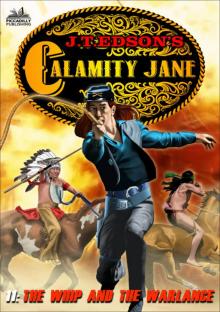 Calamity Jane 11
Calamity Jane 11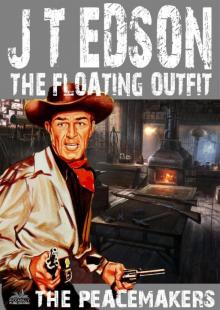 The Floating Outift 33
The Floating Outift 33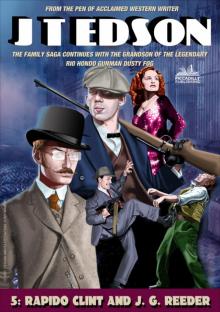 Cap Fog 5
Cap Fog 5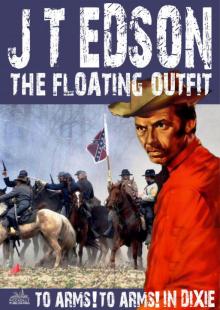 The Floating Outfit 34
The Floating Outfit 34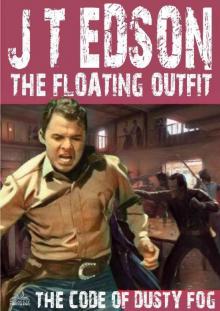 The Code of Dusty Fog
The Code of Dusty Fog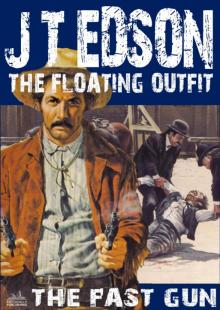 The Floating Outfit 21
The Floating Outfit 21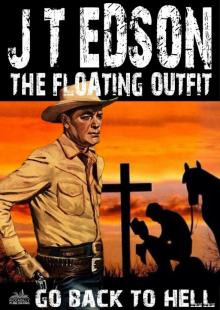 The Floating Outift 36
The Floating Outift 36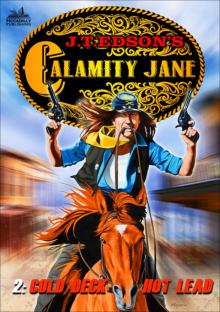 Calamity Jane 2
Calamity Jane 2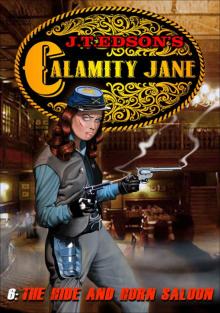 Calamity Jane 6: The Hide and Horn Saloon (A Calamity Jane Western)
Calamity Jane 6: The Hide and Horn Saloon (A Calamity Jane Western)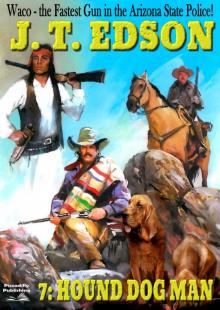 Waco 7
Waco 7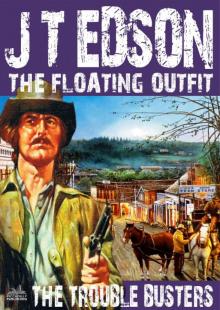 The Floating Outfit 25
The Floating Outfit 25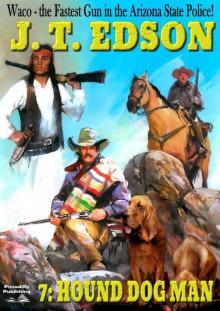 Waco 7: Hound Dog Man (A Waco Western)
Waco 7: Hound Dog Man (A Waco Western)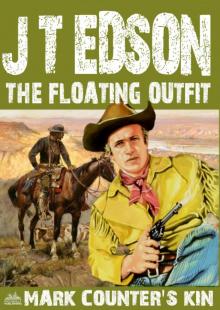 The Floating Outfit 47
The Floating Outfit 47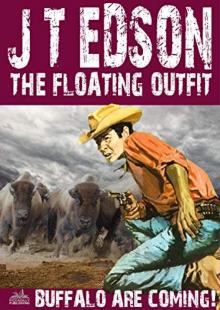 The Floating Outfit 42: Buffalo Are Coming!
The Floating Outfit 42: Buffalo Are Coming!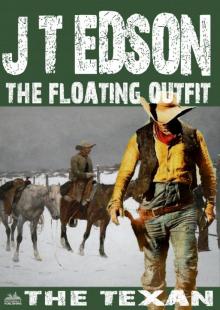 The Floating Outfit 46
The Floating Outfit 46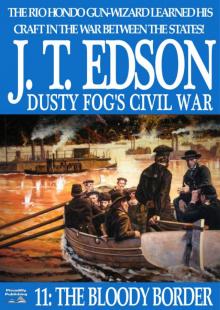 Dusty Fog's Civil War 11
Dusty Fog's Civil War 11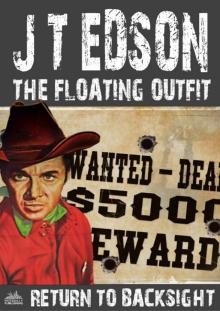 The Floating Outfit 61
The Floating Outfit 61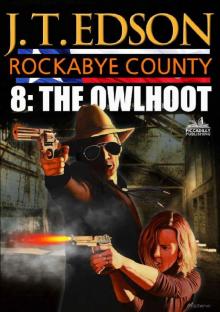 The Owlhoot
The Owlhoot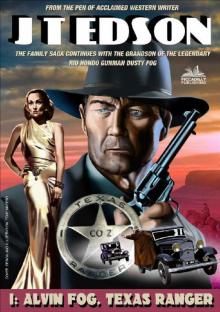 Alvin Fog, Texas Ranger
Alvin Fog, Texas Ranger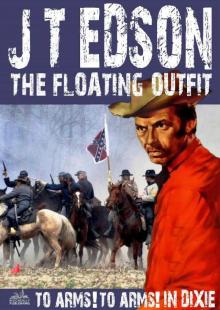 The Floating Outfit 34: To Arms! To Arms! In Dixie! (A Floating Outfit Western)
The Floating Outfit 34: To Arms! To Arms! In Dixie! (A Floating Outfit Western)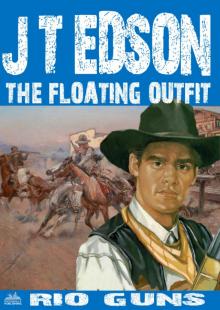 The Floating Outfit 44
The Floating Outfit 44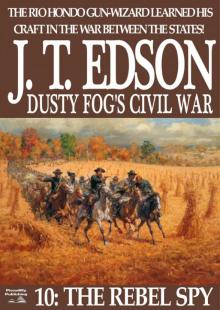 Dusty Fog's Civil War 10
Dusty Fog's Civil War 10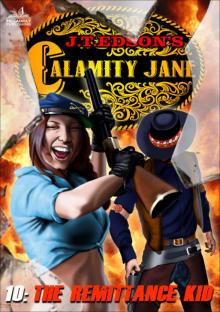 Calamity Jane 10
Calamity Jane 10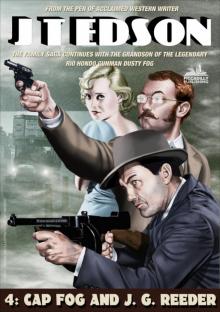 Cap Fog 4
Cap Fog 4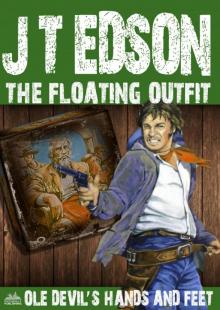 The Floating Outfit 51
The Floating Outfit 51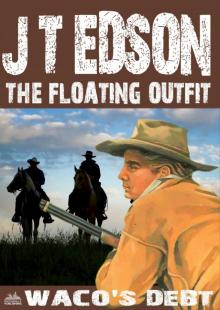 The Floating Outfit 50
The Floating Outfit 50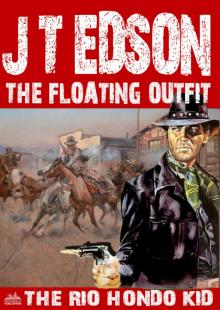 The Floating Outfit 49
The Floating Outfit 49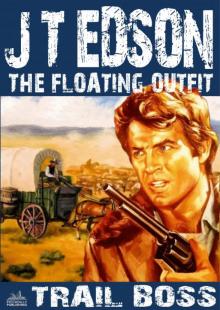 The Floating Outfit 10
The Floating Outfit 10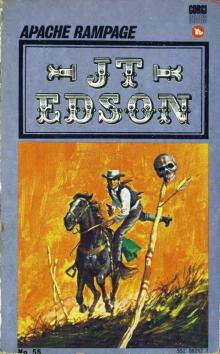 Apache Rampage
Apache Rampage The Floating Outfit 15
The Floating Outfit 15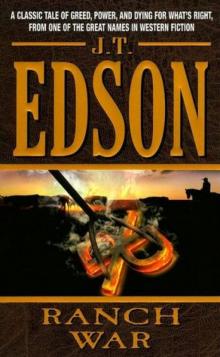 Ranch War
Ranch War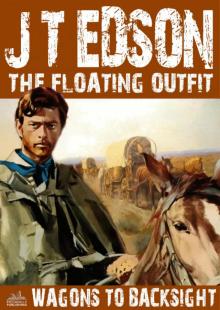 The Floating Outfit 11
The Floating Outfit 11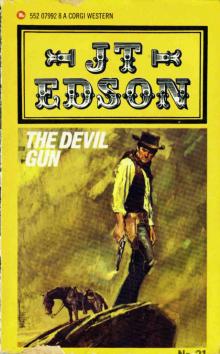 The Devil Gun
The Devil Gun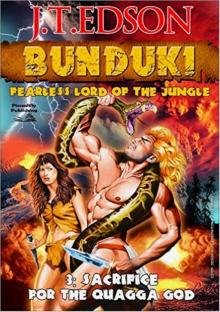 Sacrifice for the Quagga God (A Bunduki Jungle Adventure Book 3)
Sacrifice for the Quagga God (A Bunduki Jungle Adventure Book 3)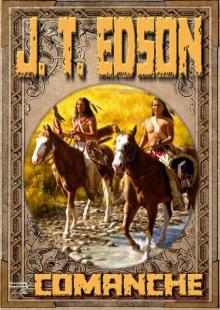 Comanche (A J.T. Edson Western Book 1)
Comanche (A J.T. Edson Western Book 1)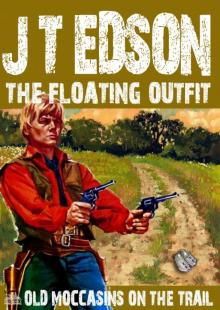 The Floating Outfit 48
The Floating Outfit 48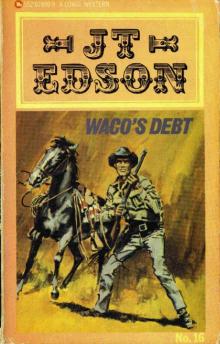 Wacos Debt
Wacos Debt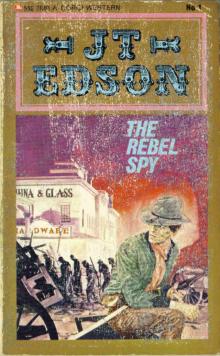 The Rebel Spy
The Rebel Spy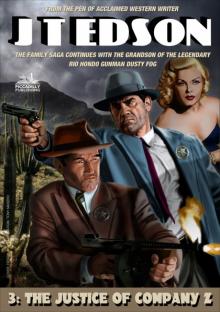 Cap Fog 3
Cap Fog 3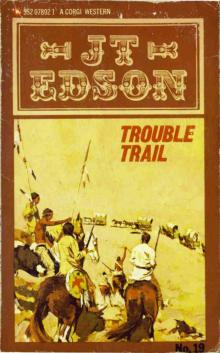 Trouble Trail
Trouble Trail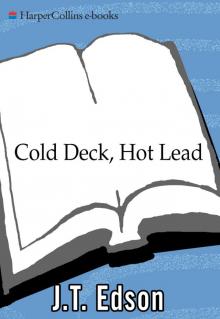 Cold Deck, Hot Lead
Cold Deck, Hot Lead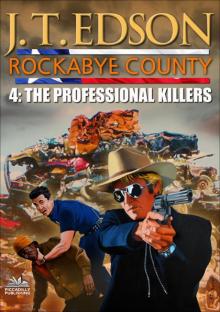 Rockabye County 4
Rockabye County 4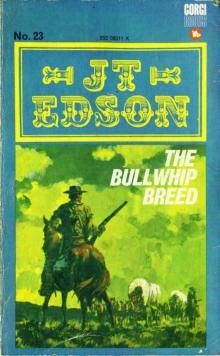 The Bullwhip Breed
The Bullwhip Breed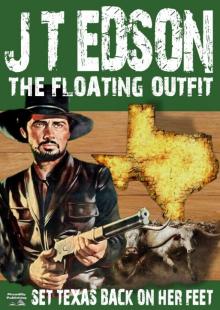 Set Texas Back On Her Feet (A Floating Outfit Western Book 6)
Set Texas Back On Her Feet (A Floating Outfit Western Book 6)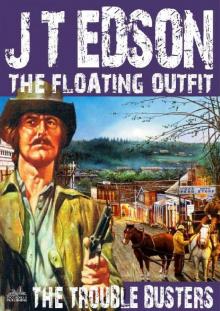 The Floating Outfit 25: The Trouble Busters (A Floating Outfit Western)
The Floating Outfit 25: The Trouble Busters (A Floating Outfit Western)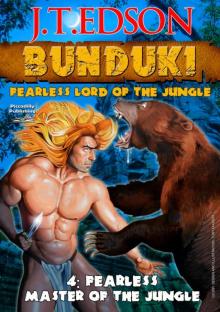 Fearless Master of the Jungle (A Bunduki Jungle Adventure
Fearless Master of the Jungle (A Bunduki Jungle Adventure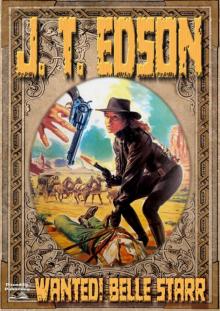 Wanted! Belle Starr!
Wanted! Belle Starr!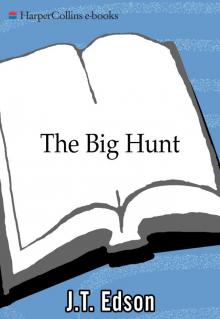 The Big Hunt
The Big Hunt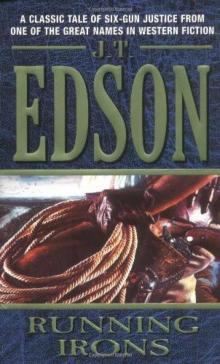 Running Irons
Running Irons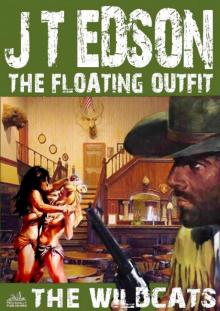 The Floating Outfit 19
The Floating Outfit 19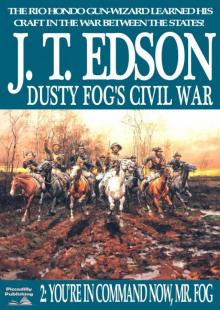 You're in Command Now, Mr Fog
You're in Command Now, Mr Fog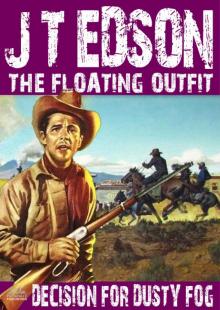 The Floating Outfit 27
The Floating Outfit 27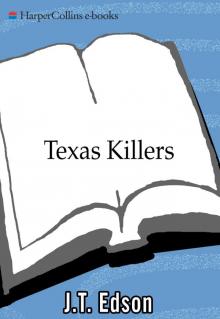 Texas Killers
Texas Killers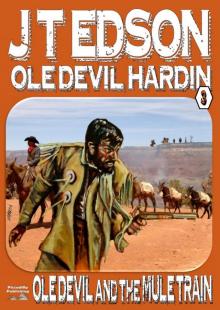 Ole Devil and the Mule Train (An Ole Devil Western Book 3)
Ole Devil and the Mule Train (An Ole Devil Western Book 3)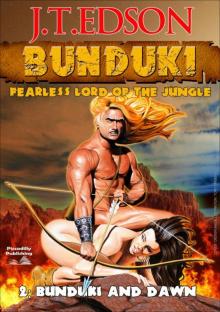 Bunduki and Dawn (A Bunduki Jungle Adventure Book 2)
Bunduki and Dawn (A Bunduki Jungle Adventure Book 2)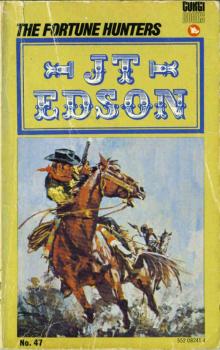 The Fortune Hunters
The Fortune Hunters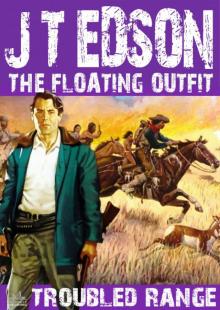 The Floating Outfit 12
The Floating Outfit 12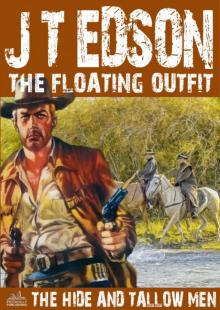 The Hide and Tallow Men (A Floating Outfit Western. Book 7)
The Hide and Tallow Men (A Floating Outfit Western. Book 7)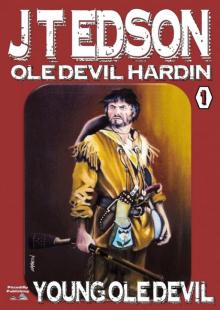 Young Ole Devil
Young Ole Devil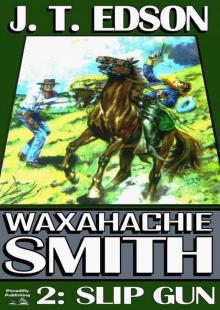 Slip Gun
Slip Gun The Drifter
The Drifter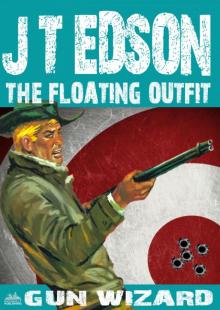 The Floating Outfit 45
The Floating Outfit 45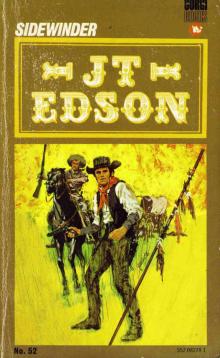 Sidewinder
Sidewinder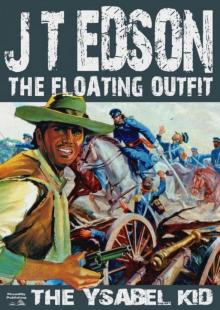 The Ysabel Kid
The Ysabel Kid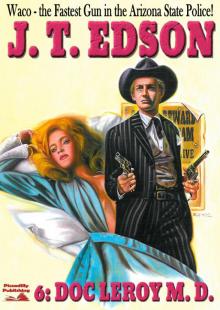 Waco 6
Waco 6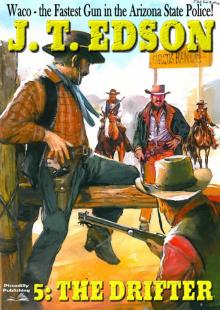 Waco 5
Waco 5 Point of Contact
Point of Contact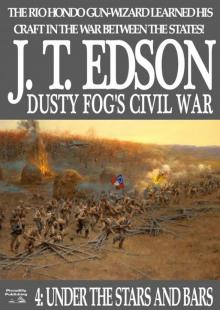 Under the Stars and Bars (A Dusty Fog Civil War Western Book 4)
Under the Stars and Bars (A Dusty Fog Civil War Western Book 4)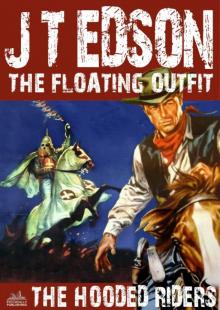 The Floating Outfit 9
The Floating Outfit 9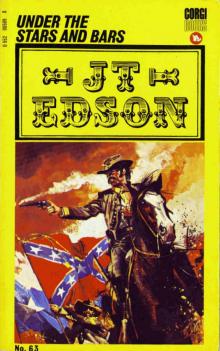 Under the Stars and Bars
Under the Stars and Bars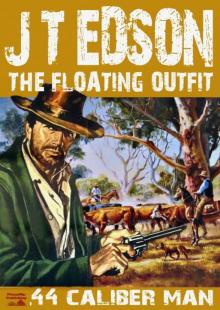 .44 Caliber Man
.44 Caliber Man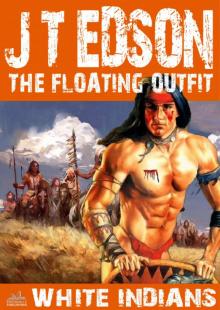 The Floating Outfit 17
The Floating Outfit 17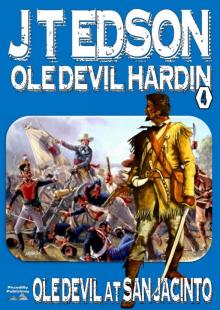 Ole Devil at San Jacinto (Old Devil Hardin Western Book 4)
Ole Devil at San Jacinto (Old Devil Hardin Western Book 4)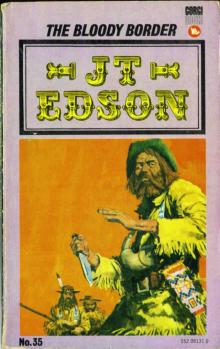 The Bloody Border
The Bloody Border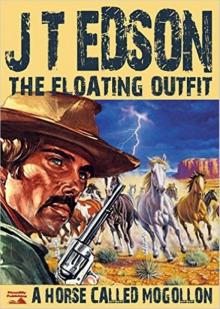 A Horse Called Mogollon (Floating Outfit Book 3)
A Horse Called Mogollon (Floating Outfit Book 3)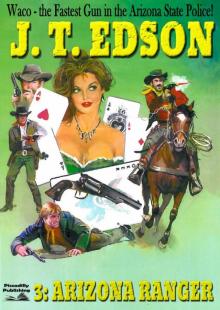 Waco 3
Waco 3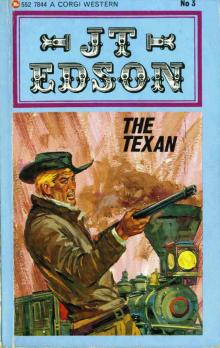 The Texan
The Texan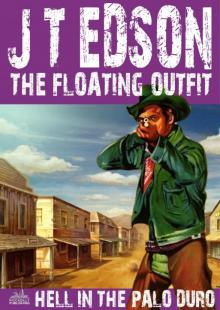 The Floating Outfit 35
The Floating Outfit 35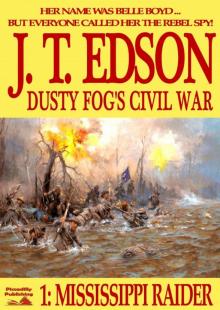 Mississippi Raider
Mississippi Raider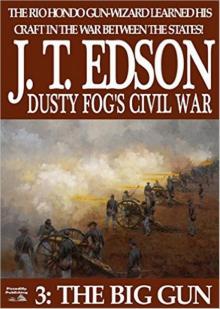 The Big Gun (Dusty Fog's Civil War Book 3)
The Big Gun (Dusty Fog's Civil War Book 3)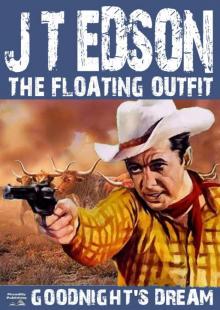 Goodnight's Dream (A Floating Outfit Western Book 4)
Goodnight's Dream (A Floating Outfit Western Book 4) Waco 4
Waco 4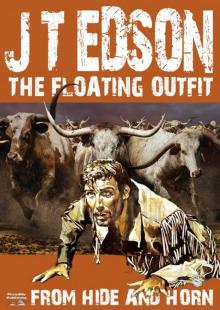 From Hide and Horn (A Floating Outfit Book Number 5)
From Hide and Horn (A Floating Outfit Book Number 5)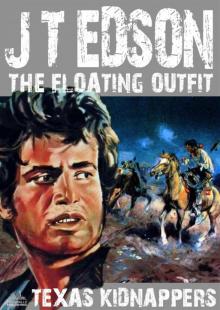 The Floating Outfit 18
The Floating Outfit 18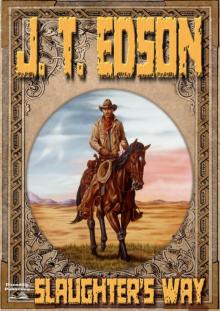 Slaughter's Way (A J.T. Edson Western)
Slaughter's Way (A J.T. Edson Western)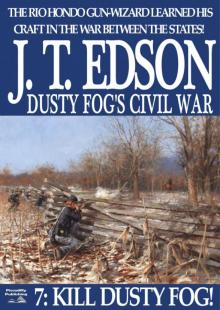 Dusty Fog's Civil War 7
Dusty Fog's Civil War 7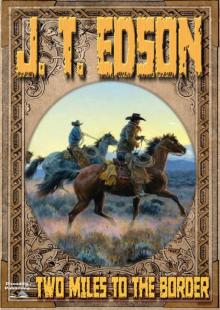 Two Miles to the Border (A J.T. Edson Western)
Two Miles to the Border (A J.T. Edson Western)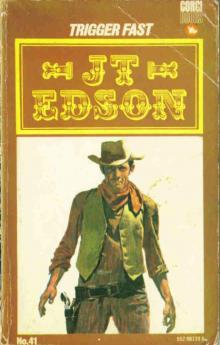 Trigger Fast
Trigger Fast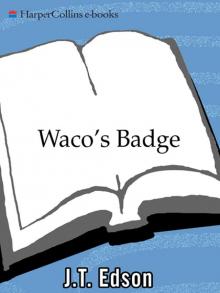 Waco's Badge
Waco's Badge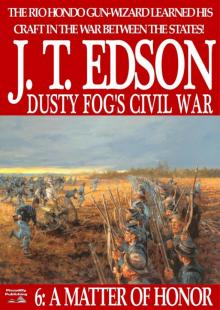 A Matter of Honor (Dusty Fog Civil War Book 6)
A Matter of Honor (Dusty Fog Civil War Book 6)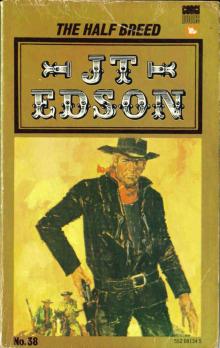 The Half Breed
The Half Breed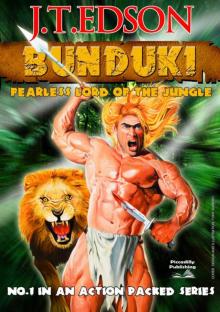 Bunduki (Bunduki Series Book One)
Bunduki (Bunduki Series Book One)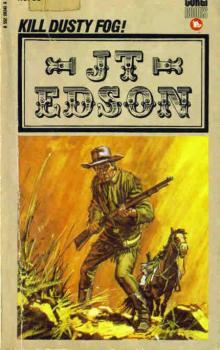 Kill Dusty Fog
Kill Dusty Fog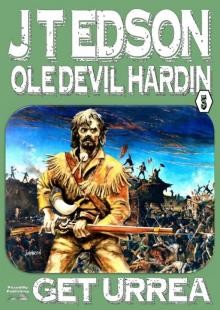 Get Urrea! (An Ole Devil Hardin Western Book 5)
Get Urrea! (An Ole Devil Hardin Western Book 5)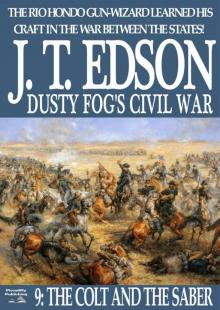 Dusty Fog's Civil War 9
Dusty Fog's Civil War 9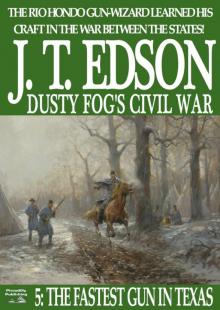 The Fastest Gun in Texas (A Dusty Fog Civil War Book 5)
The Fastest Gun in Texas (A Dusty Fog Civil War Book 5)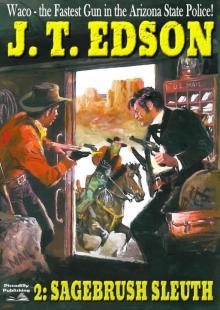 Sagebrush Sleuth (A Waco Western #2)
Sagebrush Sleuth (A Waco Western #2)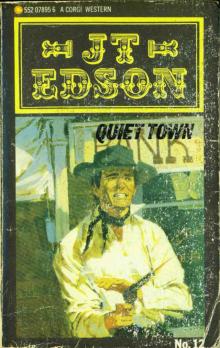 Quiet Town
Quiet Town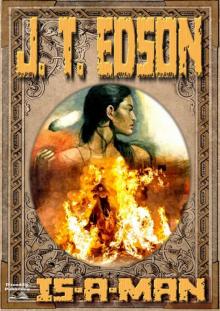 Is-A-Man (A J.T. Edson Standalone Western)
Is-A-Man (A J.T. Edson Standalone Western)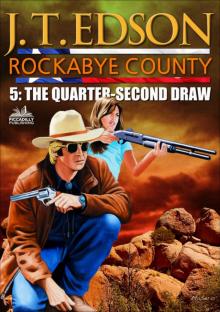 Rockabye County 5
Rockabye County 5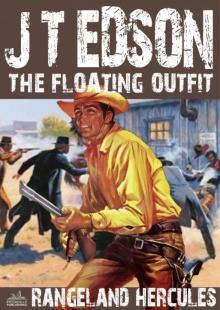 The Floating Outfit 14
The Floating Outfit 14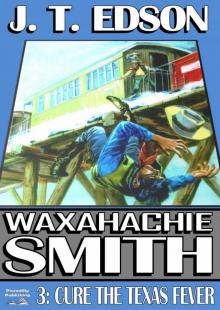 Cure the Texas Fever (A Waxahachie Smith Western--Book 3)
Cure the Texas Fever (A Waxahachie Smith Western--Book 3)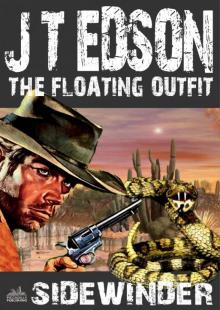 The Floating Outfit 13
The Floating Outfit 13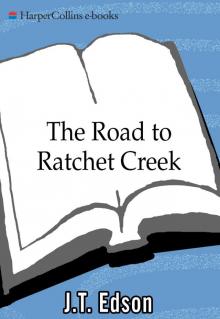 The Road to Ratchet Creek
The Road to Ratchet Creek